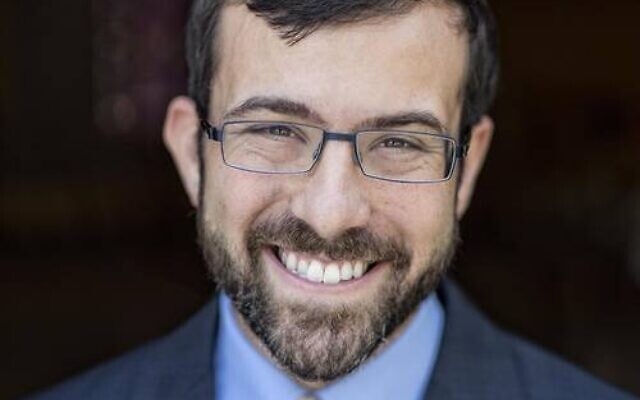A Passover Message from Rabbi Ari Kaiman
Members of the 40 Under 40 winners share their thoughts, inspiration, advice and encouragement as you prepare for the holiday.

I am not sure that “Unity Creates Community.”
Unity is exceedingly rare. We even joke amongst ourselves about this saying, “Two Jews, three opinions.” Our tradition is one that preserves minority opinions on legal matters and contradictory commentaries about narratives. Consider, for example, how we moved from Egypt through the sea of reeds. The most common understanding is that we all moved through one path together. But there are Midrashim that question this logic since the line to move through would have been incredibly long! Just think about when a Kiddush lunch is set up with only one line! One Midrash states that 12 pathways opened up, one for each tribe.
My point is not to take a side on this debate, but to note, with interest, that we are a community precisely because we have multiple perspectives to color our understanding of our collective story. We are not unified about what the story means, but we are a community because we all tell this story.
“Az Yashir Moshe U’vnei Yisrael…Ashira La-hashem Ki Ga’oh Ga’ah – Thus sang Moses and the Children of Israel, I will sing to the Lord, for G-d has triumphed gloriously.” (Ex. 15:1) One of those rare moments of unity was that new moment of collective freedom. All of the people sang as one voice, “I will sing to the Lord.” If you’ve ever sung a single song together with thousands of people in one voice, and lost yourself among the collective, it’s a powerful and potentially transformative moment of community. It’s also ephemeral.
Immediately after the communal Song of the Sea, Miriam and all of the women take timbrels and dance, and Miriam chanted responsively with them, “Shiru La-hashem Ki Ga’oh Ga’ah – Sing to the Lord, for G-d has triumphed gloriously.” It’s subtle to notice, but Miriam doesn’t ask for one voice. I like to think that she’s asking for call and response, or perhaps, even the sound of harmony. This is also a powerful and transformative model of community. Harmony is also difficult to achieve, and ephemeral. The very next narrative is the people of Israel complaining and arguing with Moses.
As we prepare to sit around Seder tables with one another, I hope you all have the blessing of diverse voices to ask questions, argue, and sing in whatever harmony you can muster. I pray that everyone has a place to go celebrate, and be your unique voice in the community of the thousands of ways we tell this story.
Rabbi Kaiman is the senior rabbi at Congregation Shearith Israel.



comments